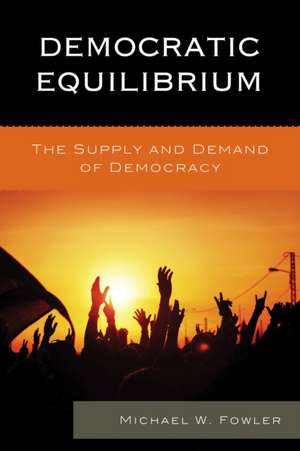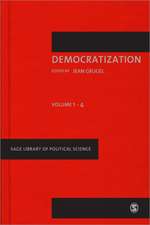Democratic Equilibrium
Autor Michael W. Fowleren Limba Engleză Hardback – 11 noi 2015
Preț: 707.36 lei
Preț vechi: 968.99 lei
-27% Nou
Puncte Express: 1061
Preț estimativ în valută:
135.36€ • 144.74$ • 112.85£
135.36€ • 144.74$ • 112.85£
Carte tipărită la comandă
Livrare economică 17 aprilie-01 mai
Preluare comenzi: 021 569.72.76
Specificații
ISBN-13: 9781498505017
ISBN-10: 1498505015
Pagini: 234
Dimensiuni: 155 x 229 x 18 mm
Greutate: 0.45 kg
Editura: Rowman & Littlefield
ISBN-10: 1498505015
Pagini: 234
Dimensiuni: 155 x 229 x 18 mm
Greutate: 0.45 kg
Editura: Rowman & Littlefield
Notă biografică
Cuprins
I Introduction
II Proposing a Model of Political Change
III Quantitative Analysis: Testing Structural Determinants of Democracy
IV Mexico: Democratic Evolution Despite Violence
V Philippines: A Resurgence of Democracy Overcomes Insurgency and Poverty
VI Senegal: The Case of a Poor, Under-Developed Democracy
VII Conclusion: The Supply and Demand of Democracy
Descriere
This book holistically synthesizes the diverse literature on democracy theory and democratization to develop a model of change along a spectrum of democracy. The combination of quantitative and qualitative approaches makes the book ideal for comparative politics courses.


















